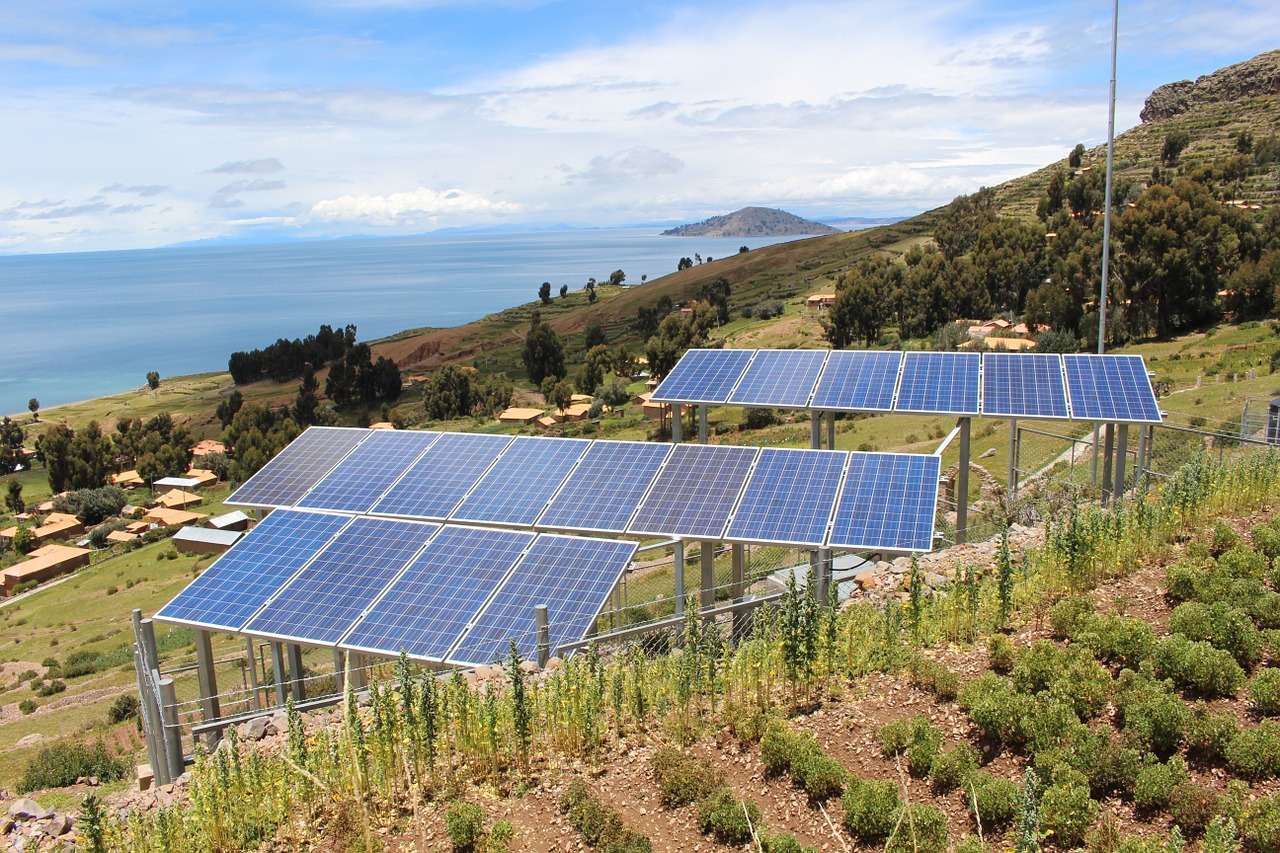
Today, solar energy is more important than ever. Global populations continue to rise, and people are living longer. This means billions of people require energy every single day to run their homes and power up schools, factories, or offices.
What that means, however, is that sooner or later, the coal, oil, and natural gas resources that are available right now may no longer be enough for world consumption. For that, we can turn to solar energy. Solar energy is an excellent alternative because it’s readily available thanks to the sun’s infinite supply of power, so tapping it as an energy source is both efficient and practical.
Moreover, developing the sun’s energy doesn’t involve stripping the Earth’s surface, unlike when we get coal or oil underneath, nor does it pose the threat of spilling oil into the oceans. Solar energy is an eco-friendly alternative that significantly reduces the damage on Earth. This can then ensure that future generations will be able to live in a cleaner and more sustainable environment.
Solar energy can have different useful applications in daily life. These go beyond installing solar panels at homes and buildings so that you can save on your monthly electricity bills. Solar energy is valuable in powering up water heating systems, as well as treating water for consumption.
Indeed, the potential of using the sun as a source of renewable energy is gaining worldwide support. More and more industries — from manufacturing to pharmaceuticals and agriculture — are now more welcoming to the idea that they should go for solar energy very soon.
We’ve compiled an updated list of facts, statistics, and trends related to solar energy. This may prove to be useful to you as you also create a blueprint for harnessing the sun’s power to provide life-giving energy to your community. Read the full infographic below.
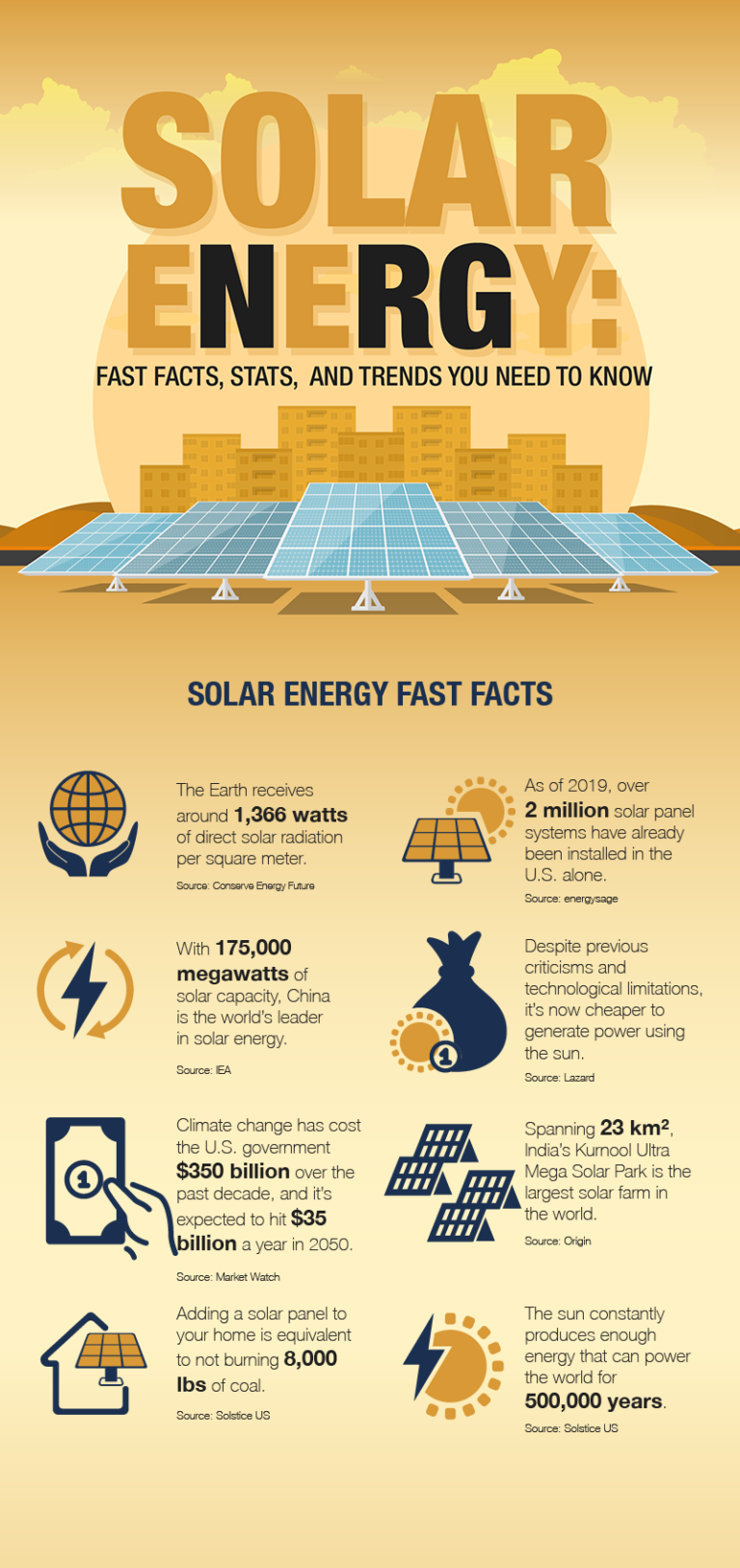

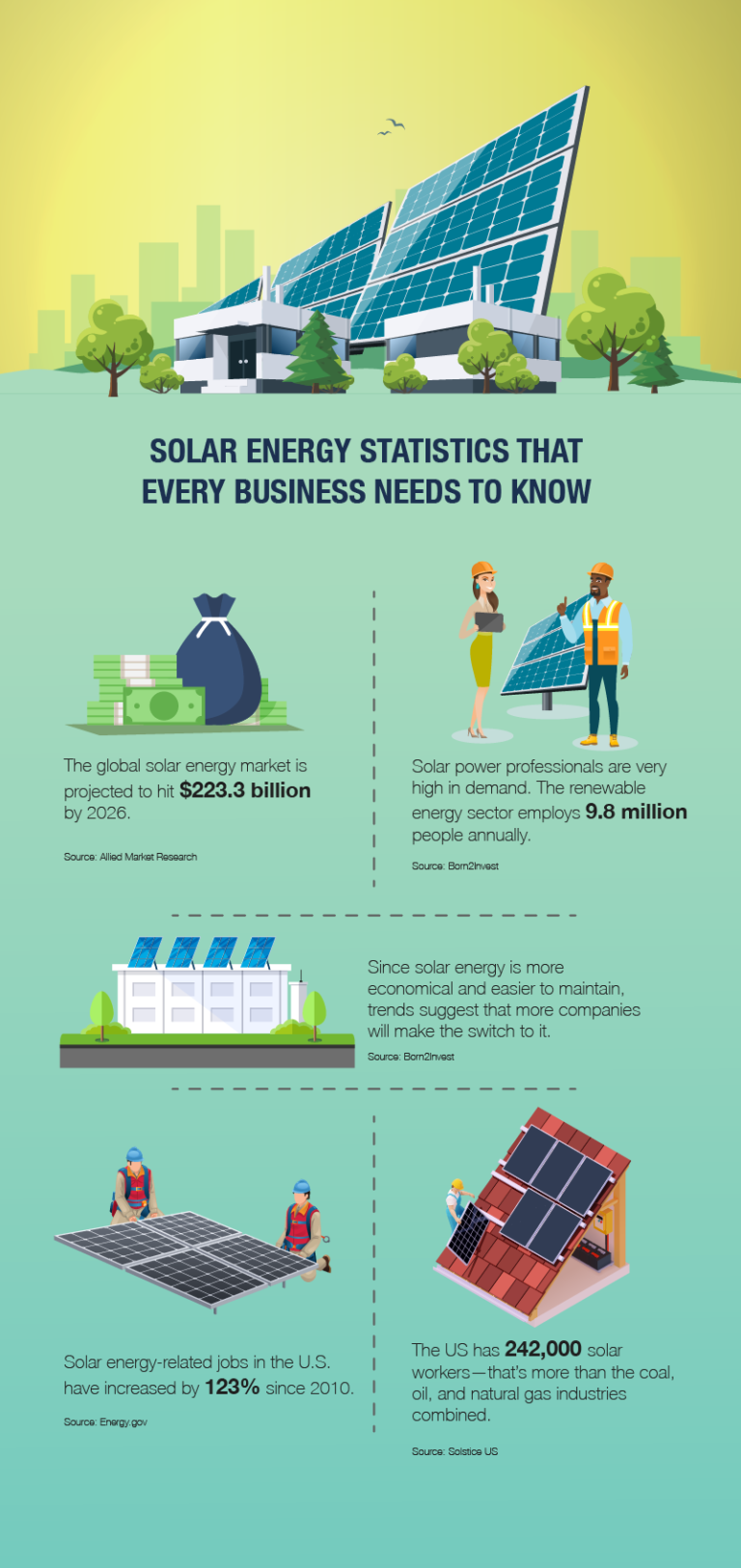
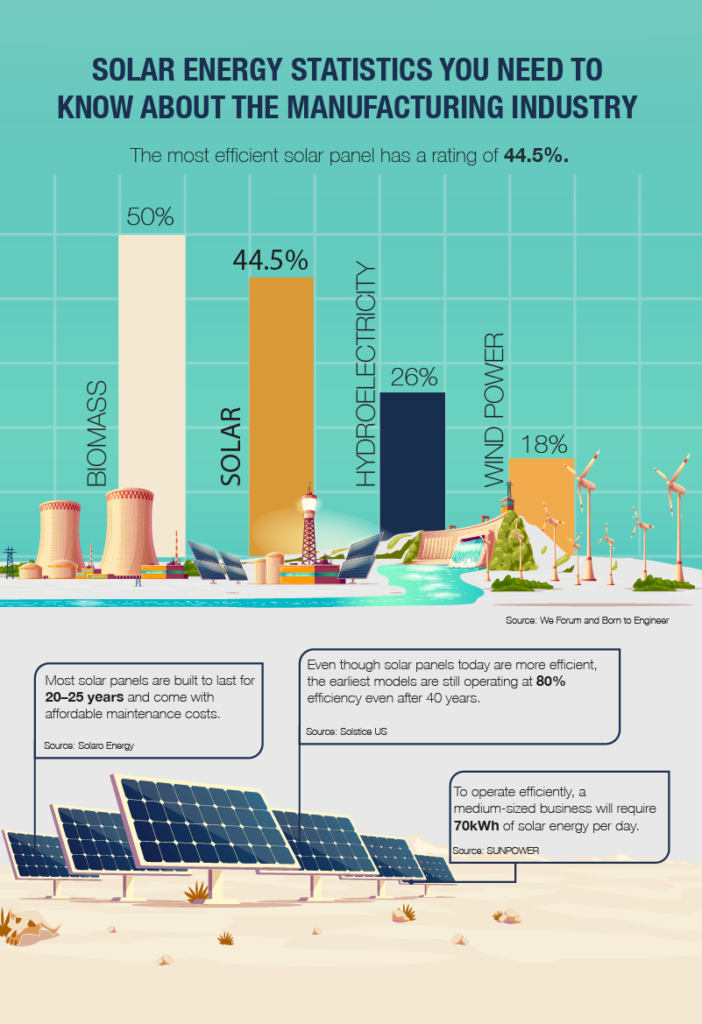
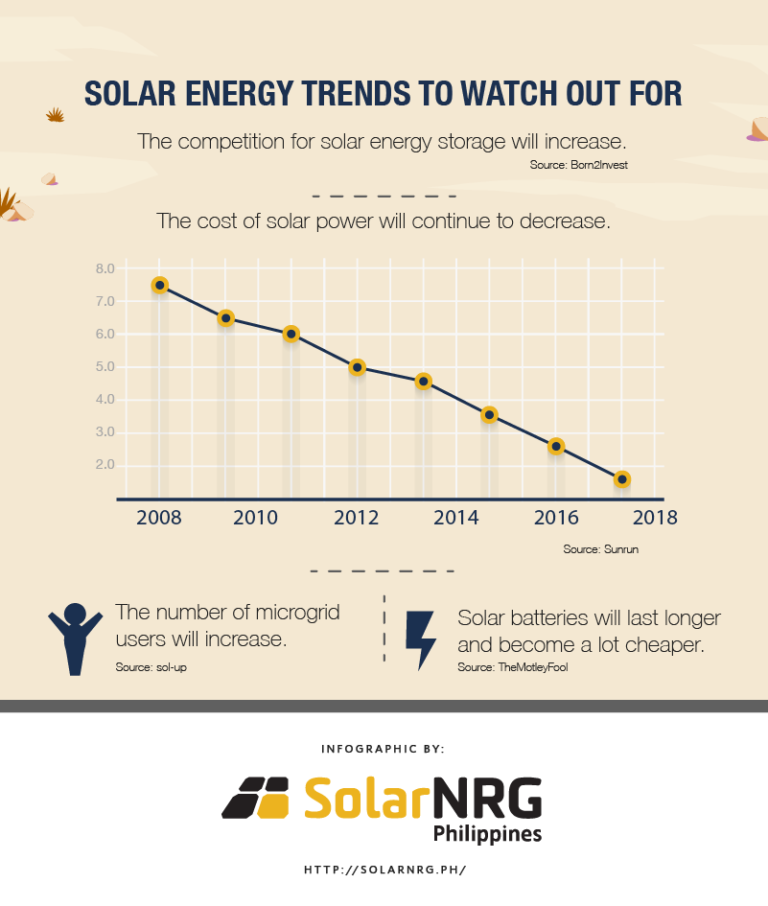
You may also like
The Benefits of Investing in Eco-Friendly Properties
7 Common Misconceptions about Solar Energy
Can The World Be Powered By Solar Energy Alone?
